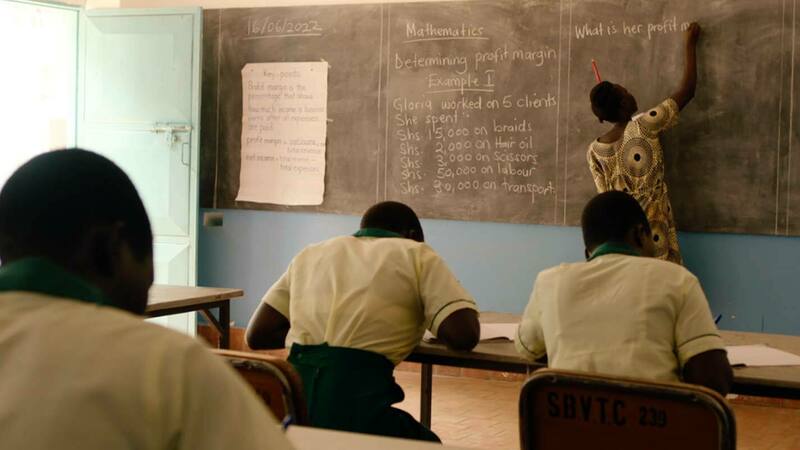Fighting to Grow the Good in Business
Victoria Nyanjura was 14 years old when she was abducted by the Lord’s Resistance Army from her school, Saint Mary’s College, in Aboke in northern Uganda. That night in October 1996, soldiers kidnapped 139 girls, before one of the school nuns persuaded the captors to set some free. Nyanjura was not among the lucky ones. Instead, she would spend eight years as a captive in the notorious Joseph Kony’s violent cult. She would be assigned as a wife to a rebel commander and have two children.
Nearly eight years later, in the chaos of a botched attack, she escaped into the night with her infant and toddler. She was eventually discovered by government troops and returned to her family.
But escape wasn’t a happy ending — it was just the beginning. Nyanjura had to rebuild a life, and that life would look different from what she envisioned at 14.
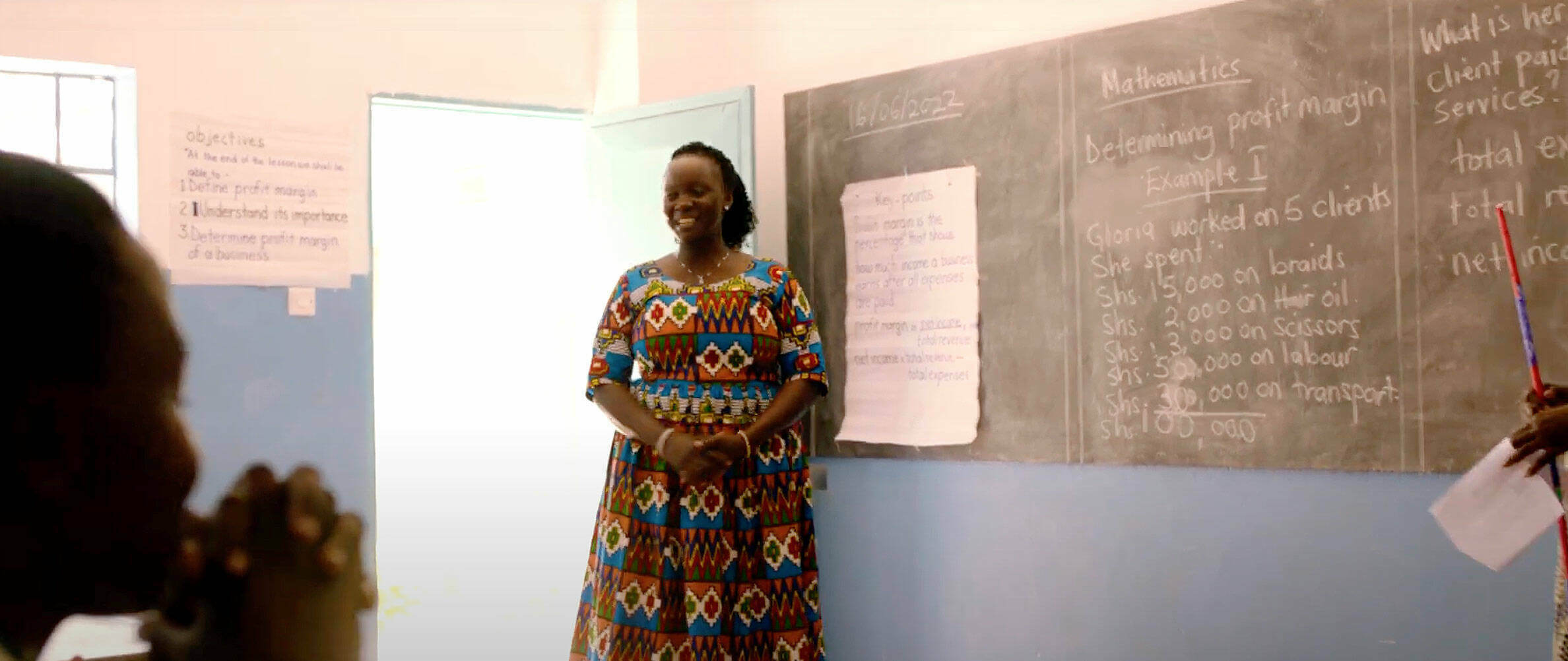
“I thought I would become an engineer, but that dream got shot,” she says. Still, she believed school would offer opportunities to heal and start fresh. She enrolled at Kyambogo University in Kampala and started courses in humanities. She graduated and joined a local nongovernmental organization to work with other women transitioning from captivity. There, she met interns and alumni from Notre Dame’s Kroc Institute for International Peace Studies who encouraged her to apply to the graduate program.
She applied to join the 2018 cohort for the graduate degree in international peace studies. In 2020, Nyanjura returned to Uganda, an official alumna from the University of Notre Dame. She started Women in Action for Women, an initiative focused on female economic empowerment, but then Notre Dame professor Wendy Angst came knocking.
Wendy Angst joined the Mendoza College of Business in 2010 where she teaches courses in entrepreneurship, consulting and innovation.
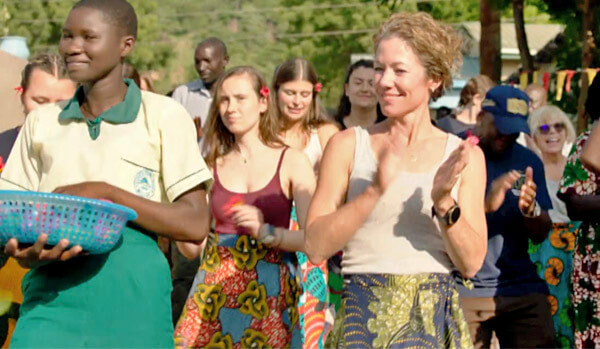
“Coming from industry, I've always valued experiential learning projects as a part of my teaching. So when I began teaching innovation and design thinking, we would do projects with a range of different organizations, from Fortune 500 companies to local nonprofits,” she explains. “The projects were always structured around the students doing hands-on work, collaborating with the client, and then going to the client site and presenting the recommendation, and then the project would end.”
In December 2019, she was at a meeting for the Pulte Institute for Global Development, where she had recently been named a fellow, when someone mentioned a school in Uganda, Saint Bakhita’s Vocational Training Center, that was struggling to define its future and wanted Notre Dame’s assistance. Angst jumped on the idea and quickly designed her spring 2020 course around Saint Bakhita’s request.
“We began the innovation and design class in spring of 2020 saying, how might we reimagine vocational education for girls in northern Uganda?” Angst explains. She and the students started brainstorming and doing preliminary research, with the intention of a full immersion and ethnographic research during spring break. In March, Angst and 12 undergraduates boarded a series of flights that took them to Kalongo. There, reality hit.
“We arrived on the ground and … we realized that everything we had read had not prepared us for just what extreme level of poverty this community is in. The average income here is just over a dollar a day. And this region of Uganda was right in the middle of the Lord’s Resistance Army conflict. The school was founded in 2007 for girls that were abducted, but now all of these years later, these would be the daughters of girls,” Angst says.
"We arrived on the ground and … we realized that everything we had read had not prepared us for just what extreme level of poverty this community is in."
The school, named for the patron saint of human trafficking, offers courses in tailoring, agriculture, hospitality, catering and information technology. But in 2020, it had only 10 remaining students, so Angst had to figure out why.
“Part of what we were learning is that families oftentimes don’t understand the value of a girl getting an education. The girls have a big role to play in helping raise children, fetch water, assist with subsistence farming and other household tasks. The other critical piece is that the families don’t have enough money to send their children to school, and when they do, the education of their sons is prioritized over that of their daughters,” she explains. “We returned from that experience and reframed our work saying, how might we give these girls an opportunity at a better life and how might we help with the economic prosperity of this region?”
Just days after returning to the U.S., the COVID-19 pandemic hit. The Notre Dame campus closed and so did Saint Bakhita’s school. But Angst wasted no time; with generosity from the Pulido-Walker Foundation, she spearheaded efforts to refresh all of the Saint Bakhita buildings with repairs, new roofs and fresh coats of paint, to install 80 solar panels to power the school and to build hand-washing stations to mitigate COVID. The donors also gifted a 40-station computer lab to facilitate ongoing collaboration between students at Saint Bakhita’s and students at Notre Dame.
The Notre Dame undergraduates kept working, too. Angst split her two classes into 12 teams, who would each formulate an idea that could help finance the school and help the local community. One idea — the planting of charcoal trees, which would be harvested for fuel, and fruit trees, to serve as additional sources of food and income for the school — offered an additional benefit of mitigating Uganda’s deforestation crisis. With the help of crowdfunding, Saint Bakhita’s planted 20,000 seedlings in May 2021 at their aptly named Innovation Acres. Angst estimates that once mature, the trees should also generate substantial revenue to offset operational costs for the school.
In the past, Angst had changed her Innovation and Design course partner organization each semester, but with Saint Bakhita’s she wanted to build a lasting relationship with lasting impact, giving Notre Dame students the opportunity to build their ideas and put them into action. She decided that each semester she would offer a new angle of engaging with the school and community.
The class skyrocketed in popularity, so Angst also launched a club in a similar model, Innovation for Impact, which boasts 150 members. Students in the club work on entrepreneurial ideas like Bakhita Butter, a spread made from ground nuts; an internet café for the community, run by the catering students; and an e-commerce site that sells garments made by the tailoring students. Some of those clothes will also be available at the Hammes Notre Dame Bookstore. The undergraduates also launched a weekly e-tutoring program with the Saint Bakhita’s students.
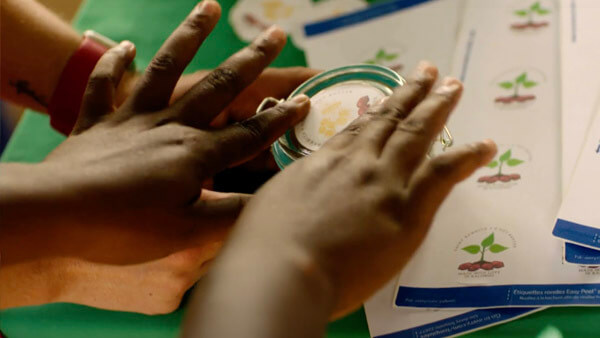

Saint Bakhita students put the final labels on Bakhita Butter and prepare fabric for sewing
The Pulido-Walker Foundation also agreed to support tuition in the form of a work-study model for 78 Innovation Scholars, ranging in age from 15 to 26. Of those, 65 percent already have children, which led to the creation of a dorm for nursing moms.
As Saint Bakhita’s Vocational Training Center gained momentum, Angst needed a new head of school, so she called Nyanjura.
Nyanjura was reluctant. She had just started her own initiative and was settled in Gulu. But Angst spoke with such love of Saint Bakhita’s that it was contagious. Nyanjura went to visit and found herself enraptured by the spirit of the place.
“She’s good at persuasion,” Nyanjura laughs. “She just made it like this is what we can do together.”
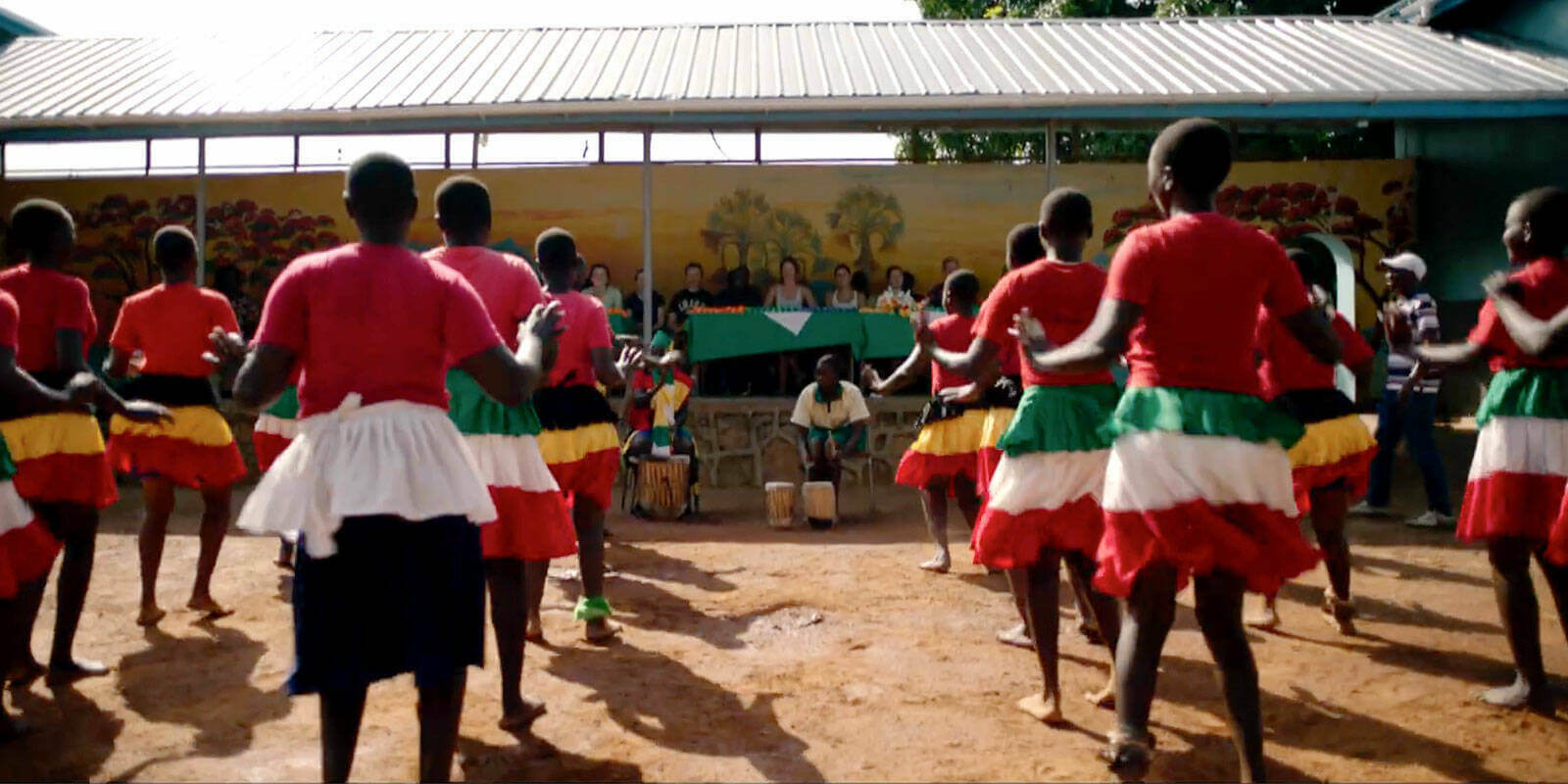
Together, Nyanjura and Angst are powerful and unafraid of lofty ambitions. They have set three primary goals: the school will be self-sustaining within five years, it will become among the top vocational schools in Uganda and it will help garner economic prosperity in the region.
It’s early, but signs point to a positive trajectory. Nyanjura notes that the true collaborative effort is how and why the progress has been so positive.
“One thing I like about the collaboration with Notre Dame is that it hasn’t been imposed, what you want us to do … every time, it’s an interaction,” Nyanjura says. “We interact, get common ground and then implement accordingly, so everyone is learning in the process, and we all move at the same pace.”
She hopes they’re instilling that spirit of collaboration, and a desire to do good, into the students as well.
“We’re a family. We are doing it together,” Nyanjura says. “Our hope is that even these young mothers don’t leave it within themselves, but they have to extend it to their families, their communities.”
She picked up that mission to be a channel for good from her time at Notre Dame, she says. Now she hopes she can pass that along.
“Notre Dame really prepares you to do good. You see it, you test it, and you feel you need to offer it out there.”
